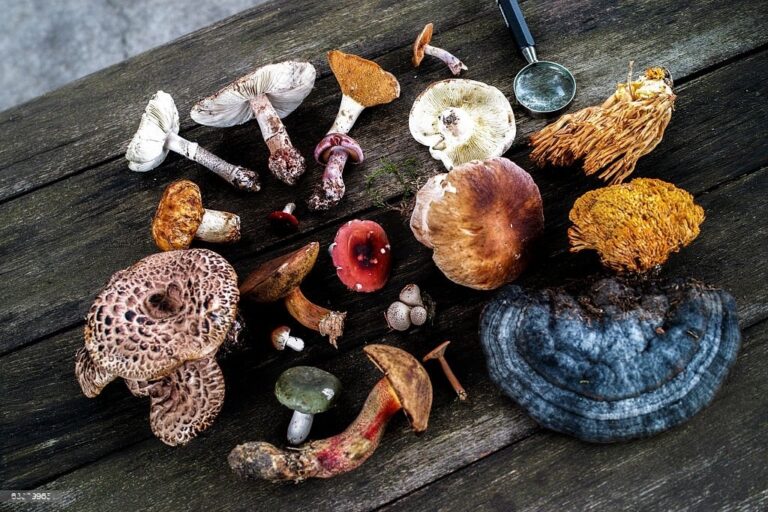Medicinal mushrooms, a group of fungi with potent healing properties, have gained significant attention in recent years for their remarkable health benefits. From boosting the immune system to reducing inflammation, these extraordinary fungi offer a treasure trove of therapeutic potential.

What Are Medicinal Mushrooms?
Medicinal mushrooms are a specific group of fungi that possess medicinal properties and have been used in various cultures throughout history for their healing abilities. These fungi contain bioactive compounds, such as polysaccharides, triterpenes, and phenolic compounds, which contribute to their therapeutic effects. Unlike culinary mushrooms consumed for their taste, medicinal mushrooms are primarily valued for their health-promoting properties.
History and Traditional Use
The use of medicinal mushrooms dates back thousands of years, with documented evidence found in ancient civilizations like China, India, and Egypt. Traditional Chinese medicine, in particular, has a rich history of incorporating medicinal mushrooms into remedies for a wide range of ailments. These mushrooms were revered for their ability to strengthen the body, promote longevity, and restore balance.
The Science Behind Medicinal Mushrooms
Modern scientific research has shed light on the mechanisms behind the therapeutic properties of medicinal mushrooms. These fungi contain bioactive compounds that interact with the body’s immune system, promoting its function and providing antioxidant effects. The polysaccharides found in mushrooms, such as beta-glucans, play a crucial role in modulating immune responses, making them a valuable asset in supporting overall health.
Medicinal Mushrooms and Their Benefits
1.) Reishi Mushroom
Reishi mushroom, also known as the “Mushroom of Immortality,” has a long history of use in traditional medicine. It is revered for its immune-modulating properties and its ability to support liver health. Research suggests that Reishi mushroom may also have anti-inflammatory and antioxidant effects, making it a promising ally in the fight against chronic diseases.
2.) Chaga Mushroom
Chaga mushroom is highly prized for its potent antioxidant properties. It contains a variety of beneficial compounds, including melanin, polysaccharides, and betulinic acid. Studies have shown that Chaga mushroom may help enhance the immune system, reduce inflammation, and potentially inhibit the growth of cancer cells.
3.) Lion's Mane Mushroom
Lion’s Mane mushroom is known for its unique appearance and remarkable cognitive benefits. It has been traditionally used to support brain health and enhance cognitive function. Recent research suggests that Lion’s Mane mushroom may stimulate the production of nerve growth factors, which could contribute to improved memory, focus, and overall mental well-being.
4.) Cordyceps Mushroom
Cordyceps mushroom has gained popularity for its potential to enhance athletic performance and increase energy levels. It is believed to improve oxygen utilization and increase endurance. Additionally, Cordyceps mushroom may have anti-inflammatory properties and provide support to the immune system.
5.) Turkey Tail Mushroom
Turkey Tail mushroom, named for its resemblance to a turkey’s tail feathers, is recognized for its immune-boosting properties. It contains a compound called polysaccharide-K (PSK) that has shown promising results in cancer treatment. Turkey Tail mushroom may also help reduce the side effects of chemotherapy and enhance overall well-being.
Safety and Precautions
While medicinal mushrooms are generally considered safe for most people, it is essential to exercise caution. If you have underlying health conditions or are taking medications, consult with a healthcare professional before incorporating medicinal mushrooms into your routine. Additionally, ensure you source mushrooms from reputable suppliers to guarantee their quality and purity.